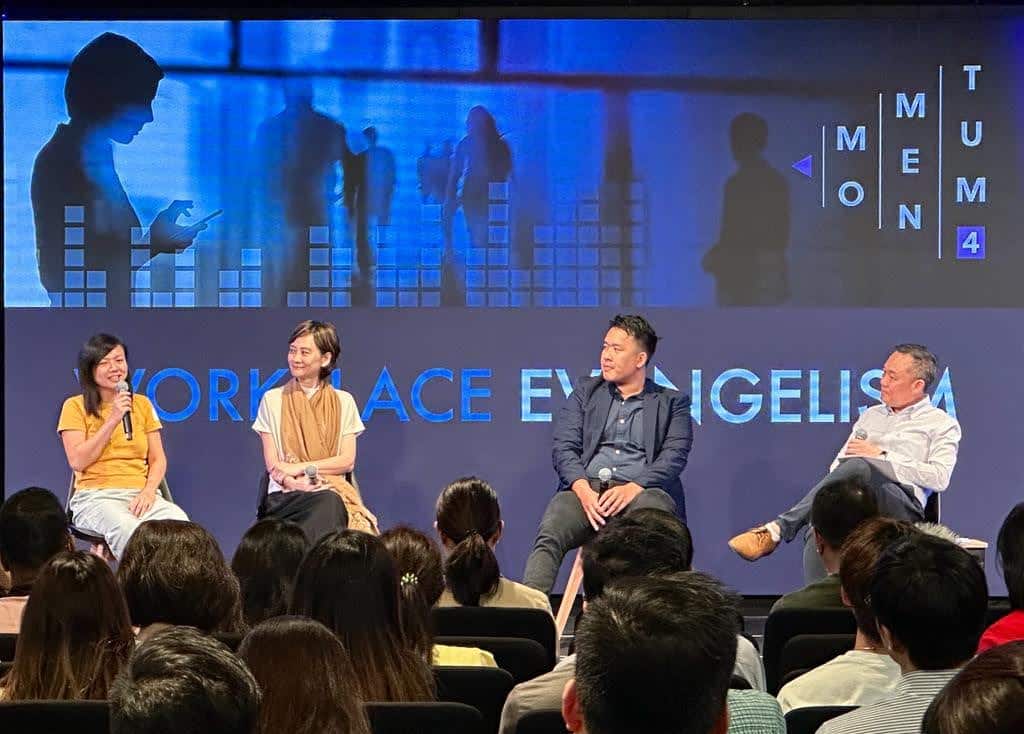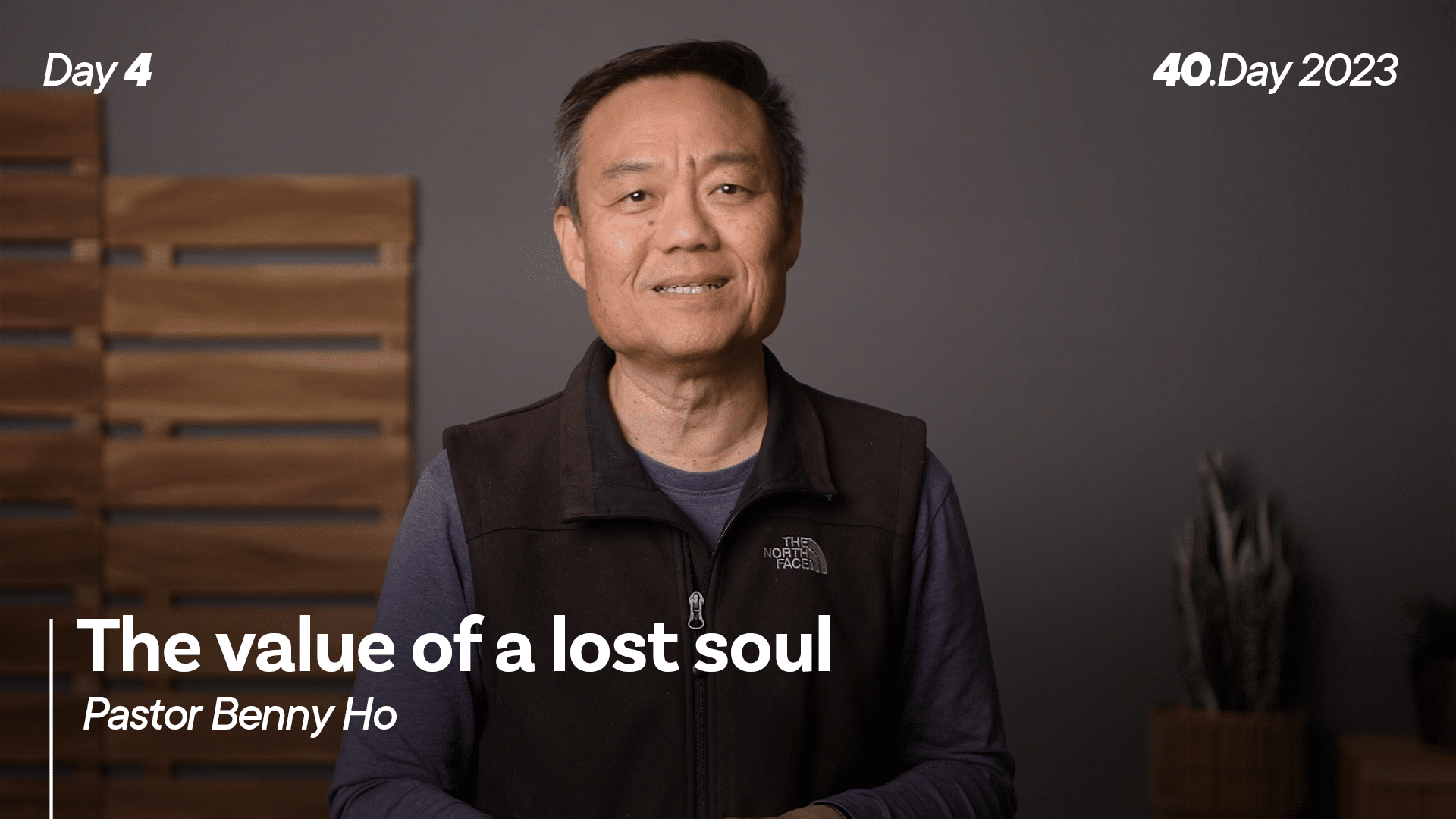“There’s nothing wrong with playing politics as a Christian”: Rev Barney Lau, former MD of Microsoft Singapore
by Jane Lee // November 6, 2019, 5:45 pm
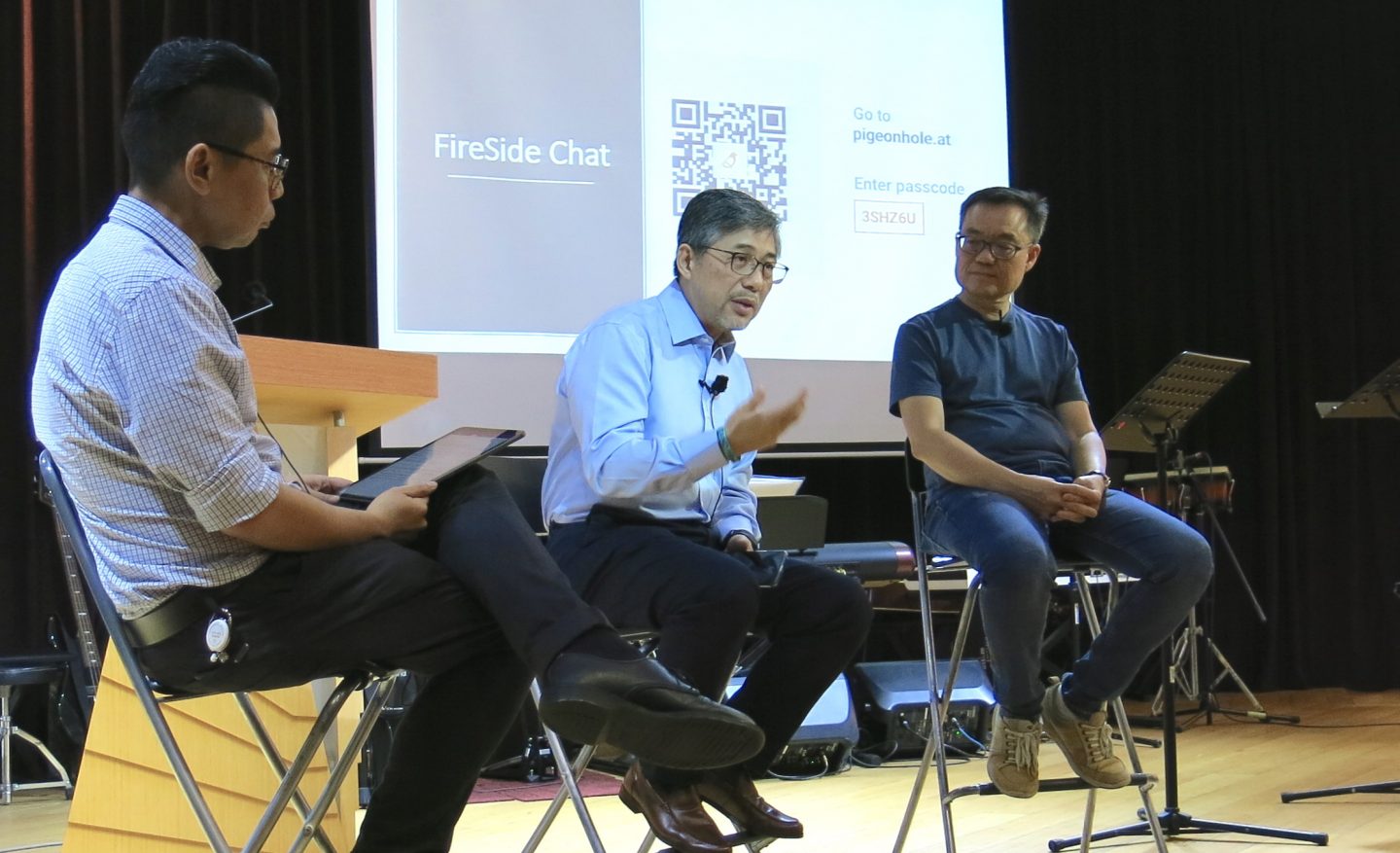
(from left) Nelson Tan, Reverend Barney Lau and Pastor Benny Ho tackled questions on how Christians can live out their faith at work during an event to connect believers who work in the technology sector. All photos by Jane Lee.
It just wasn’t working out. Her subordinates didn’t want to work for her and her peers couldn’t work with her. Reverend Barney Lau, who was the managing director of Microsoft Singapore then, had to let her go after completing the relevant HR process.
She wrote an e-mail to the company’s C-suite leaders, copying Rev Barney, to say that he mistreated her.
“I looked at the e-mail and I thought that was the end of my career,” he joked, drawing much laughter from the 80 attendees at an inter-company worship and community building event for those working in the technology sector yesterday.
Christians need to understand their “bottom line” and “top line”.
Yet Rev Barney, who is now a pastor and director of ministries at Covenant Evangelical Free Church, was not afraid.
“What’s the worst that can happen to me? I just get fired.”
To him, Christians need to understand their “bottom line” and “top line”.
“If you don’t know what’s the bottom line, you’ll be afraid when you have to give up some things. If you don’t know your top line, you’ll keep going in your career as high as possible but you won’t know how far you should fly and what you should not give up,” he explained.
“But if you understand your bottom line and top line, and you know your mission field and your battleground, then you’re prepared and you’re secure.”
‘Good’ politics
During the 50-minute question-and-answer session, Rev Barney and Pastor Benny Ho, senior pastor of Faith Community Church in Australia and an advocate of marketplace ministries here, gamely and candidly took on a variety of questions, which ranged from the mildly sensitive (“How do we deal with foreign talents who might be taking our jobs?”) to the practical (“How do we love those who are difficult to love at work?”).
But the discussion that garnered the most nods was one on politics, a topic that resonated strongly with those working in the highly competitive technology sector.
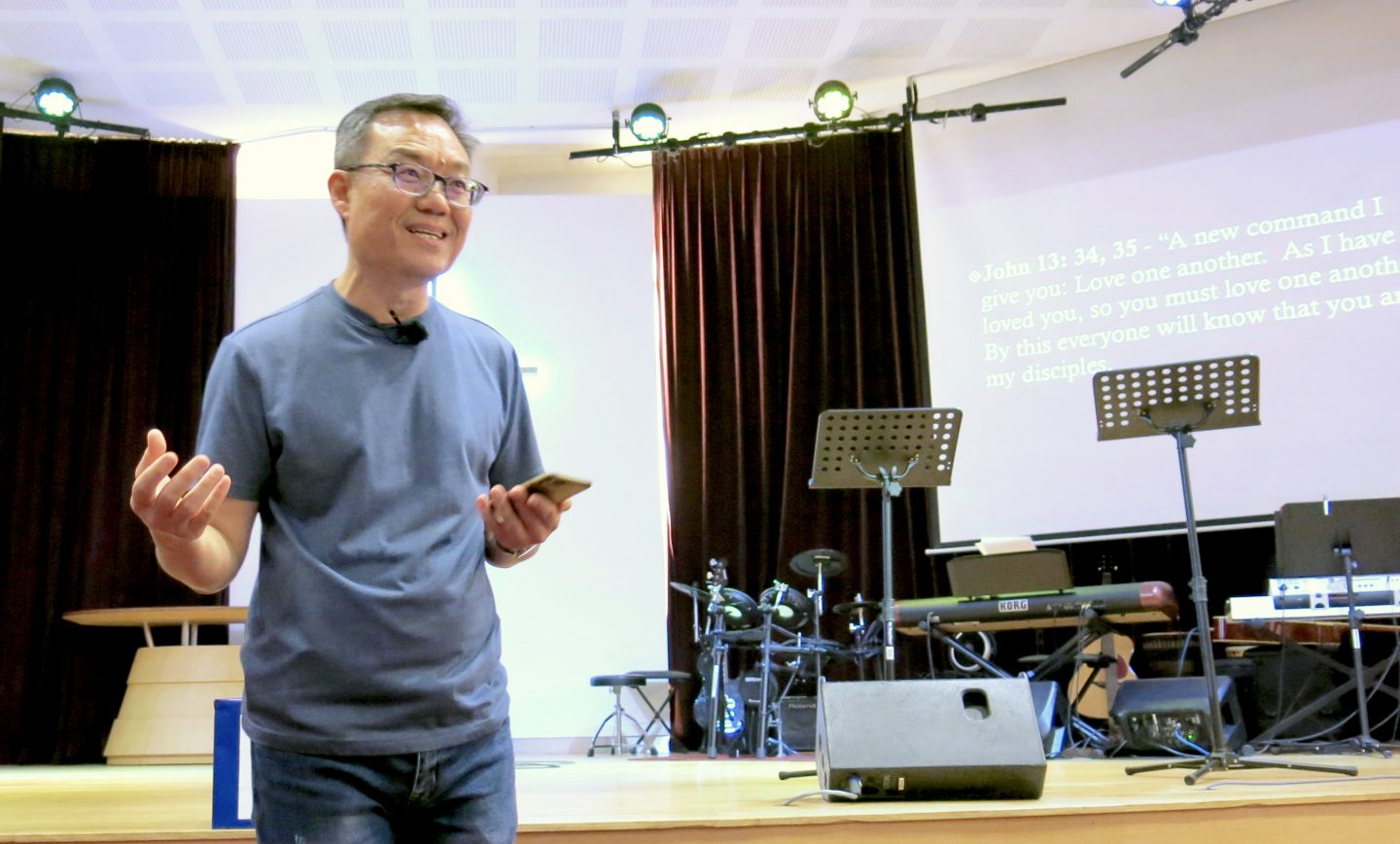
Ps Benny encouraged the participants to show love practically in the office, giving them four simple things they can do to live out John 13:34-35 “the very next day”.
“As long as you’re in a big company, as long as there are human beings, you have to play politics,” said Rev Barney. “There’s nothing wrong with playing politics as a Christian. The only question is what kind of politics do you play?”
Ps Benny also noted that the word “politics” is actually a compound word, coming from the word “polite” and “policy”. He added: “What is politics is actually a polite way of putting forward a difficult policy, and we’re engaged in politics all the time, whether it’s at home or at work.”
“The only question is what kind of politics do you play?”
Both speakers acknowledged that politics has such a bad connotation because most of the politics that people play in companies, and even churches, is negative politics, which typically stems from selfish personal agendas, insecurities or pride.
Reminding Christians to be “sly as a serpent and gentle as a dove” (Matthew 10:16), Rev Barney said there is room for positive politics.
“Don’t be afraid of politics. But ask yourself whether the politics you’re playing is for the good of the company, or are you playing politics from a position of insecurity that someone is going to take your job?” he asked pointedly.
Love practically
Yesterday’s event at the Bible House was the second to be organised by a core group of Christians working at Mapletree Business City – home to many big-name technology companies – so that various marketplace fellowship groups in the industry can connect with one another.
Coming from companies such as Facebook, Google, Cisco, Oracle, SAP, Microsoft, IBM, Apple and Samsung, the attendees might be competitors in their day job but last night they came together as fellow brothers and sisters to worship, share and pray together.
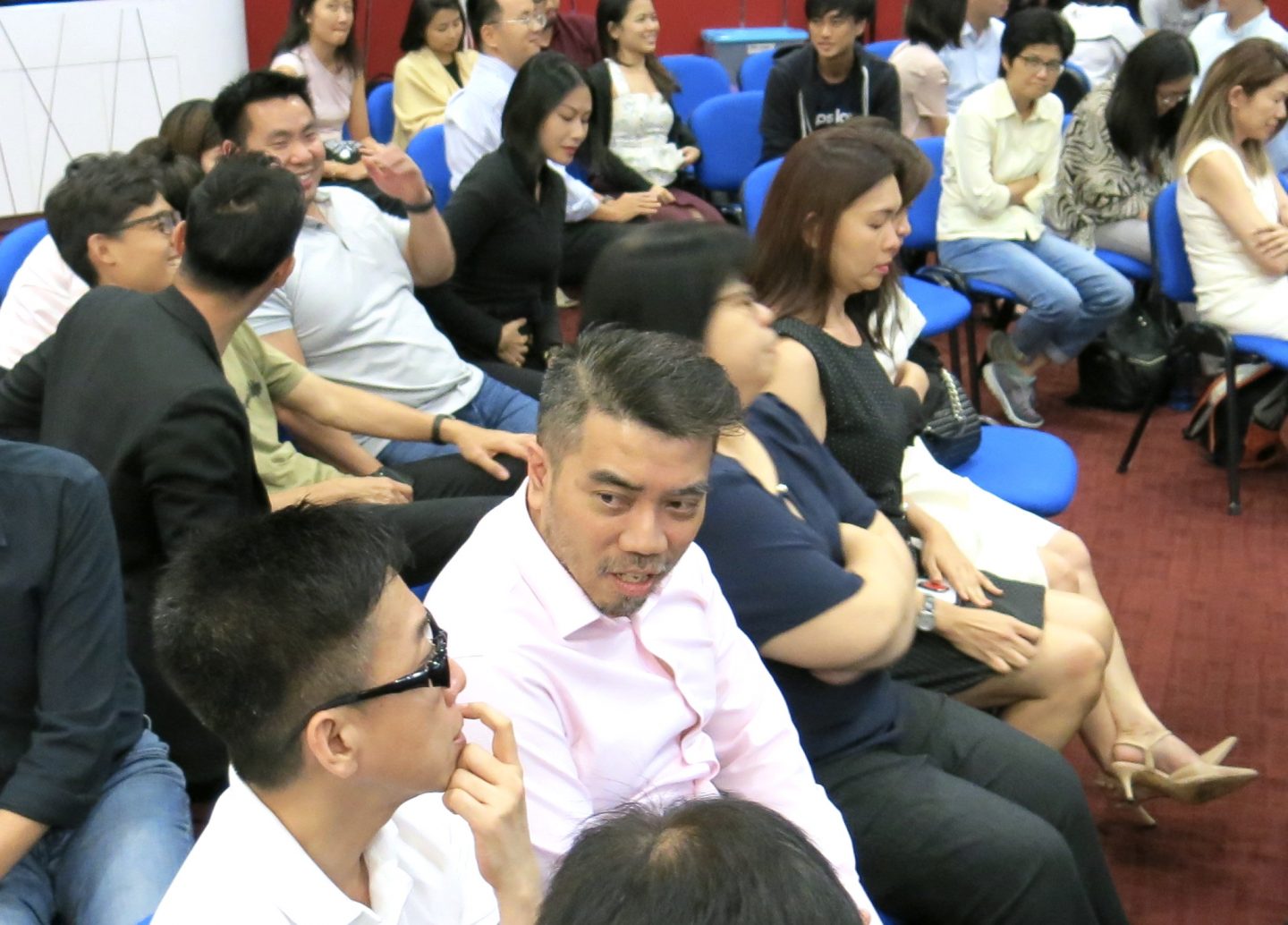
About 80 attendees, mostly from the technology sector and involved in their company’s Christian ministry, came together for a time of fellowship, worship and prayer.
“A few of us felt God’s leading to build a connection of believers to encourage the setting up of more marketplace prayer groups and fellowships,” said Nelson Tan, a finance controller at Cisco and one of the event organisers.
“Christian groups at Facebook headquarters and the Google office in California were able to organise 12 hours of worship in their respective campuses. While we can’t do 12 hours of worship yet, we can do a night of worship every three to four months.”
And this extended time of fellowship was appreciated by many of the participants who were attending for the first time.
“People cannot see our heart, they can only see our hands.”
Simon Wong, finance controller at SAP and who’s currently heading the Christian ministry in the company, said that the regular one-hour lunch-time gatherings are sometimes too short to connect deeply with one another.
Agreeing, Quek Yiting, technical account manager at Microsoft, added: “It was also helpful to get refreshing insights on how Christians can be counter-cultural and authentic in Christ in the marketplace.”
Speaking on John 13:34-35, Ps Benny gave four tips on what “loving one another” means in the context of the office. First, pray faithfully for divine appointments where you can show an act of kindness. Second, take time to connect relationally with your colleagues to build trust and so that we can understand their felt needs.
Third, demonstrate practical love. “People cannot see our heart, they can only see our hands. The only way they can really experience love is when we show it practically,” he explained. “This could be an act of service or a word of encouragement.”
Finally if we have done all that, then “we’ve earned the right to share boldly”. He added: “And they will hear us, because they have personally experienced God’s redemptive practical love through us.”
We are an independent, non-profit organisation that relies on the generosity of our readers, such as yourself, to continue serving the kingdom. Every dollar donated goes directly back into our editorial coverage.
Would you consider partnering with us in our kingdom work by supporting us financially, either as a one-off donation, or a recurring pledge?
Support Salt&Light